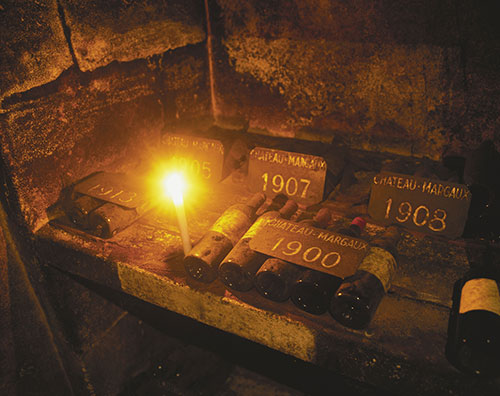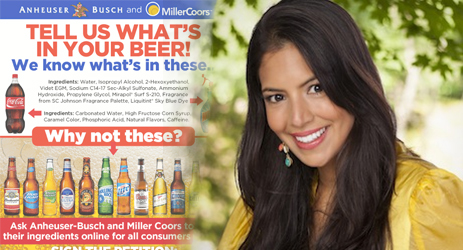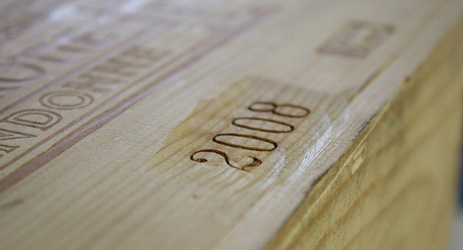Jefford on Monday
There aren’t many wine stories which break through to the general media. When they do, it’s rarely good news for the wine world.

The sentencing of Rudy Kurniawan on August 7th by Judge Richard Berman to ten years’ imprisonment, $28.4 million in restitution payments plus a fine of $20 million did indeed reach the parts of the general media which other wine stories fail to reach. No surprise: a colourful story, a heavy sentence, a colossal fine. And all – the home-bound drive-time listener will conclude – for faking a few bottles of wine! And selling them via auctioneers who should have known better (why aren’t they in court?), to saps whose trust in the auction house was misplaced, and who must have more money than sense in any case. ‘There shouldn’t be a bottle of wine that is three times what people make in a year’ said Jerome Mooney, Kurniawan’s defense attorney, in a state of abbreviated excitement. It’s no defense; but many will agree.
The world’s take-home message – inaccurate, of course – is that any expensive old wine could well be a fake. The Kurniawan trial, as I wrote on January 13th this year, marked the end of innocence in the wine world. The verdict marks the end of trust: yet more bad news for fine wine as an ‘asset class’.
It underlines how important trust is in the relationship between wine producer and consumer, and how many layers of trust are involved in the purchase of wine compared to the purchase of other food and drink products.
Drinkers trust, first of all, that wine won’t contain chemical substances they would rather not consume. With the exception of sulphur, though, wine additives are never mentioned on labels, so there is a subdued but pervasive distrust of what might actually be in wine as a consequence. It is this mistrust which fills the sails of the natural wine movement – and that movement in turn increases distrust of wines which don’t claim to be ‘natural’.
Wine traders sometimes express their outrage at the claims to exclusive purity made by natural wine producers, yet it is the silent concealment of additives by the conventional majority which gives such claims their traction. Traders should pressure their suppliers to make full and honest disclosure of additives, putting wine on an equal footing with other food and drink products, rather than assailing those who don’t want to use additives with invective.
Another layer of trust concerns the information which consumers can find on labels, and in particular information about variety, vintage, alcohol level and regional origin. Much of this looks precise, but is in fact approximate. In most US states, for example, a 2013 varietal Chardonnay labeled 13% abv could include 25 per cent Muscat, be 14% abv (or, less probably, 11.5% abv), and include 15 per cent of wine from 2012. If the Chardonnay claims to be from an AVA, then 15 per cent of the blend could have come from outside that AVA. If it says it comes from a county or state, then 25 per cent could have come from outside that county or state (though not in the case of the biggest wine-producing state, California, which has a 100 per cent requirement). How are we doing on trust here?
In Australia, a 2012 Barossa Shiraz could be 15 per cent 2013 Cabernet from McLaren Vale. European wines have the same margin of untrustworthiness when it comes to variety and vintage, though if a wine comes from a named (PDO) zone, then it should be exclusively from that zone. All of this flip-floppiness, of course, concerns wines sent to market in an entirely un-fraudulent manner. There are markets, though, where assorted forms of label fraud are commonplace, notably China. Trust then becomes a rarer commodity still.
Finally, of course, comes the most challenging hurdle of all for the consumer: finding what he or she trusted would be there in the bottle. There are lots of ways in which this trust might be misplaced.
First of all, the wine might be corked, bottled in a reduced state, suffering from (premature) oxidation or in some other way defective: all disappointments far more common when you buy a bottle of wine than when you buy breakfast cereals or tinned sardines. (Wine is more reliable than avocados, but not by much.)
A bigger problem, though, may be consumers finding that a wine they have bought doesn’t really live up to the dream they have been sold – by the resonant appellation name, by the guff on the label, by the glowing review, by the sommelier’s downward glance. How many of those taking home bottles of Bourgogne Rouge every year are pleased with what they have bought? Does every case of wine bought en primeur (and thus necessarily on trust, from a note made by somebody tasting an unfinished wine) bring entire satisfaction? Was that high-scoring, breathtakingly expensive wine purchased for a singular celebration worth even half what it cost? Fallible subjectivity of judgment, of course, is not the same thing as fraud, but consumers may well regard them as first cousins. The wine world needs trust – and we all need to try harder to create it.

Columnist Introduction
Andrew Jefford is a columnist for both Decanter magazine and www.decanter.com, Jefford has been writing and broadcasting about wine (as well as food, whisky, travel and perfume) since the 1980s, winning many awards – the latest for his work as a columnist. After 15 months as a senior research fellow at Adelaide University between 2009 and 2010, Andrew is currently writing a book on Australia's wine landscape and terroirs. He lives in the Languedoc, on the frontier between the Grès de Montpellier and Pic St Loup zones.
Click here to read all articles by Andrew Jefford>>
- Follow us on Weibo@Decanter醇鉴 and Facebook
and Facebook for the latest news and updates -
for the latest news and updates -
All rights reserved by Future plc. No part of this publication may be reproduced, distributed or transmitted in any form or by any means without the prior written permission of Decanter.
Only Official Media Partners (see About us) of DecanterChina.com may republish part of the content from the site without prior permission under strict Terms & Conditions. Contact china@decanter.com to learn about how to become an Official Media Partner of DecanterChina.com.



Comments
Submit